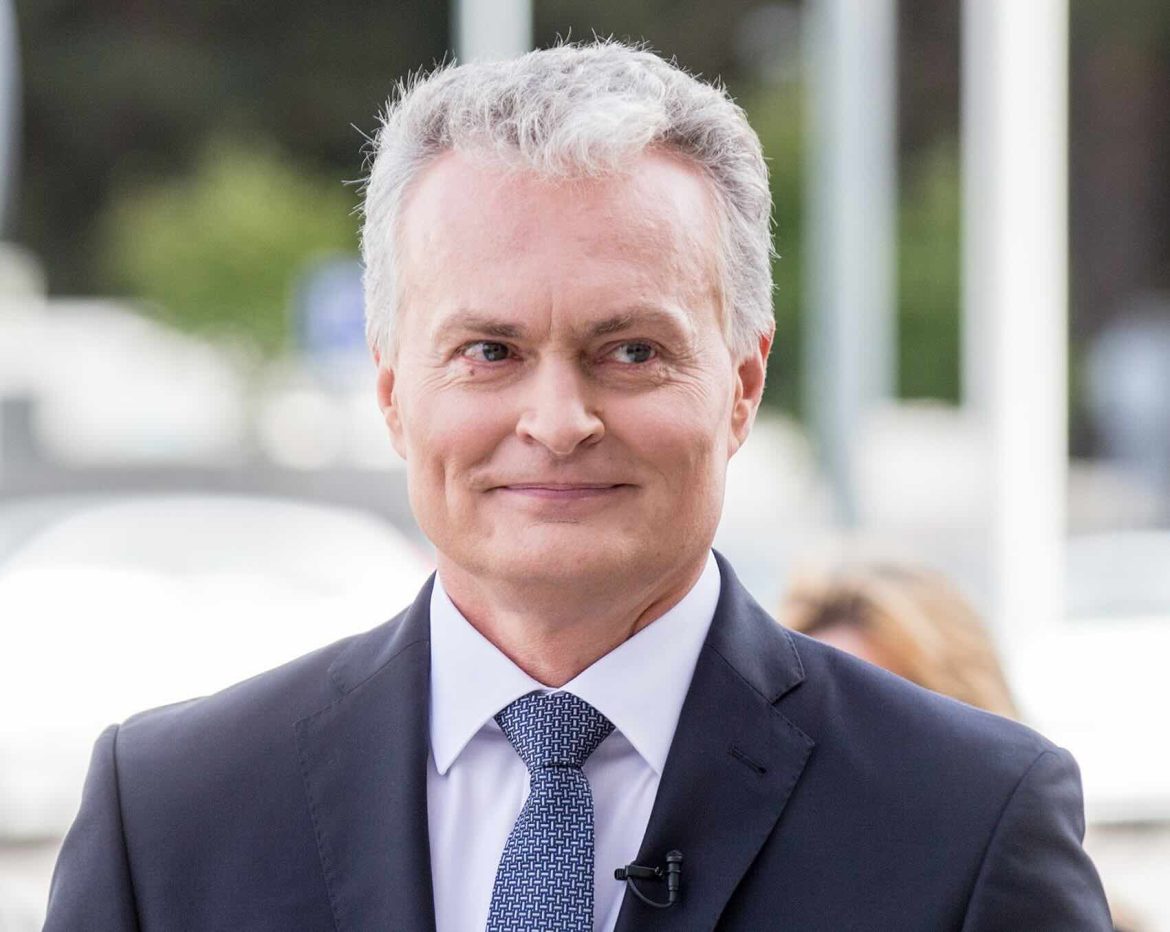Lithuanian President Gitanas Nausėda has urged European Union leaders to include Lukoil in the bloc’s forthcoming 20th package of sanctions against Russia, arguing that the oil major should no longer be treated as an exception.
Speaking to reporters in Brussels on Thursday, he said Lukoil was absent from the 19th package approved earlier in the day and questioned “how long” the company would remain a “sacred cow”. He added that adding the firm to EU measures would deliver a significant blow to Russia’s economy.
Nausėda linked his call to this week’s decision by the United States to escalate restrictions on Russia’s two largest oil companies, Rosneft and Lukoil. Washington’s measures freeze any assets those firms hold in the US and bar American companies from doing business with them. The Lithuanian leader described the US move as a “game changer” that is already reverberating through markets and energy trade flows.
EU governments on Thursday adopted their 19th sanctions package by written procedure. The measures, trailed in recent days and now formally endorsed by the Council, expand restrictions across energy, finance and transport. Notably, the package introduces the bloc’s first ban targeting Russian liquefied natural gas, setting a phase-out that culminates in an end to long-term contracts by early 2027. It also tightens curbs on Russia’s “shadow fleet” of ageing tankers used to move oil in circumvention of earlier measures, and further limits movements by Russian diplomats.
Nausėda argued that, while the latest EU package bears down on gas, Brussels should now align more closely with Washington on oil. “The American example shows that we also need to fight against imports of oil,” he said, signalling that work on the 20th package should prioritise energy revenues that underpin the Russian budget.
Immediate market effects from the US sanctions were visible. Oil prices rose and traders reported a retrenchment among some key Asian buyers. Multiple reports indicated that China’s state oil companies — including PetroChina, Sinopec, CNOOC and Zhenhua Oil — temporarily suspended purchases of seaborne Russian crude linked to the sanctioned entities, pending compliance assessments. Analysts suggested Indian refiners were also reviewing exposure. Such shifts, if sustained, could squeeze Moscow’s discounts and redirect trade to alternative suppliers.
For the EU, adding Lukoil to a 20th package would mark an escalation focused squarely on oil revenues, after months in which member states have concentrated on tightening enforcement and closing loopholes. Lithuanian officials have said the next round could also feature further tariff and financial measures, though detailed drafting will depend on consensus among the 27 governments. Past rounds have required lengthy negotiation to accommodate differing national energy mixes and legal considerations around existing contracts.
The discussion comes as leaders in Brussels debate a proposed €140 billion “reparation loan” for Ukraine backed by the profits and principal of frozen Russian central bank assets. Belgium, which hosts a large share of those assets via the Euroclear clearing house, has sought legal risk-sharing assurances from partners. Nausėda voiced support for a solution that would ensure Belgium is not left “alone” in potential litigation.
Any move to sanction Lukoil at EU level would intersect with complex corporate footprints in Europe. In Germany, for example, authorities placed Rosneft’s refinery stakes under trusteeship in 2022; Berlin is now seeking carve-outs from US measures to secure operations at those plants. Such cases illustrate the operational and legal sensitivities that often shape sanctions design and timelines in both Brussels and allied capitals.
Since the start of Russia’s full-scale invasion, the EU has layered sanctions to curtail Kremlin revenues and constrain its defence industry. Earlier packages targeted coal and seaborne crude imports, capped oil prices alongside G7 partners, restricted technology exports, and listed individuals and entities aiding the war effort or sanctions evasion. The 19th package extends this approach, particularly on LNG and shipping, while work on a 20th round is expected to begin immediately at expert level.
Nausėda’s intervention sets a clear marker for those talks: align EU measures more closely with US steps on oil by naming Lukoil in the next tranche. Whether member states will agree remains uncertain, given the need for unanimity and the practical issues around refining, supply security and existing commercial arrangements. But with Washington turning the screw on Russia’s leading oil producers and some Asian buyers stepping back, pressure is building in Brussels to calibrate the 20th package accordingly.


